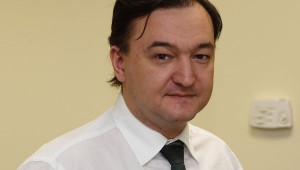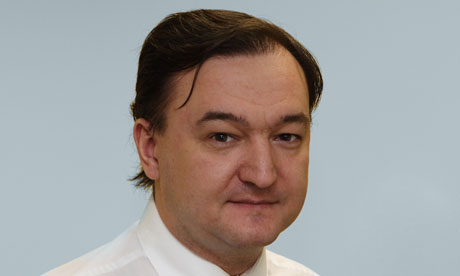By Terance Walsh
Impunity Watch Reporter, Europe
LONDON, United Kingdom — The parliament of the United Kingdom unanimously passed a resolution urging sanctions against Russian officials for the egregious arrest and murder of Sergei Magnitsky. The resolution was proposed by Dominic Raab and calls on the government of the UK to freeze the assets and visas of sixty Russian officials who were complicit in Magnitsky’s death.

The measure is labeled “Human Rights Abuses and the Death of Sergei Magnitsky.”
The human rights issues surrounding Magnitsky arise from a $230 million tax fraud scheme perpetrated by tax agents who registered fake companies with Hermitage Capital. In 2008 Magnitsky uncovered the scheme. The Russian government, instead of punishing the wrongdoers, framed Magnitsky and blamed him for the scheme. The government subjected Magnitsky to abhorrent living conditions in prison and denied him urgent medical treatment. They allowed him to die on the floor of the Matrosskaya Tishina prison hospital while he waited for a doctor for over an hour.
An investigation by Hermitage Capital leader William Browder uncovered the framing scheme and found that the true criminals were all enriched by the scheme while truth tellers were punished. Meanwhile the Kremlin has perpetuated the cover-up by seeking to prosecute Magnitsky posthumously.
“All the suspects were cleared by Russian investigators. Some have been promoted, some decorated. In fact, the only people on trial are Magnitsky’s employer and Magnitsky himself, now the subject of Russia’s first ever posthumous prosecution,” Raab said.
The bill passed by the UK Parliament is meant to support the truth Magnitsky worked for and help those fighting for human rights improvements in Russia.
“The UK Parliament has spoken overwhelmingly in solidarity with Sergei Magnitsky and the other brave voices fighting for the rule of law and reform in Russia. The government should now heed its will and come forward with a bill to impose targeted sanctions on those responsible for torture, assassination and other crimes against those struggling to promote or defend the most basic freedoms we enjoy here,” said Mr. Raab, MP.
Other Members of Parliament have expressed enthusiasm over the measure. “I am delighted that the House of Commons has unanimously expressed its will that the UK should join other government around the world in refusing visas and travel rights into the UK for those responsible for the persecution and death of Sergei Magnitsky,” said Sir Malcom Rifkind, MP.
Alistar Burt, the UK’s Foreign Office Minister, said that he does not oppose the bill, but it is the policy of his office not to comment on individual cases.
Mr. Burt did mention, however, that “[t]he death of Sergei Magnitsky serves as a stark reminder of the human rights situation in Russia, and questions about the rule of law there.”
The measure calling for sanctions comes on the heels of Vladimir Putin re-taking the Russian presidency. Parliament declared its intent to shed light on Russian human rights abuses prior to debating the Magnitsky sanctions bill. Former foreign secretary William Millband stated, “[t]his is not about Russia-bashing but support for a Russia fit for the history of that country.”
The measure calls for sanctions for those who
“(a) were involved in the detention, physical abuse or death of Sergei Magnitsky;
(b) participated in efforts to conceal the legal liability for the detention, abuse or death of Sergei Magnitsky;
(c) committed the frauds discovered by Sergei Magnitsky; or
(d) are responsible for extrajudicial killings, torture or other gross violations of human rights committed in Russia or any other country against any individual seeking to obtain, exercise, defend or promote basic and internationally recognised human rights, including those set out in the International Covenant on Civil and Political Rights 1966.”
While the debate in Parliament was ongoing Russian officials objected to any proposed sanctions by the British government. The Russian ambassador to the United Kingdom sent written objections to Member so Parliament telling them of errors in their proposed sanctions.
Mr. Raab responded “It’s bad enough Mr Putin’s regime corrupting elections in Russia. But it adds insult to injury for him to send envoys to try to subvert democracy in this country.”
The United States and the Netherlands have both imposed visa bans against Russian officials involved in Magnitsky’s death. Russia responded by banning certain American and Dutch officials, but none of the countries have actually carried out the ban.
The United States Congress is currently considering a measure similar to the one urged by Parliament. The Obama administration has shown no urgency to pass the measure, however, likely because of the provision in the bill that requires sanctions for any official associated with “gross violations of human rights.” This proposition would drastically change the US’s human rights policy.
Last month the European Parliament’s delegation on relations with Russia requested that European Union member nations take action against Russia in response to the Magnitsky affair.
Raab has called on the UK government to pass the measure before the Queen’s speech, scheduled to take place on May 9th.
For more information please see:
The Guardian — At Last, The British Parliament Demands Action Against Corrupt And Murderous Russian Officials — 8 March 2012
Law and Order in Russia — British Parliament Votes Unanimously In Favor Of Magnitsky Sanctions — 8 March 2012
Radio Free Europe/Radio Liberty — U.K. Lawmakers Urge Sanctions Against Russians Over Magnitsky Death — 8 March 2012
RIANOVOSTI — British MPs Urge Magnitsky List Sanctions — 8 March 2012
The Guardian — Russia ‘Tries To Gag British Parliament’ — 7 March 2012
BBC — UK MPs To Stage Debate Over Russia’s Human Rights Record — 28 February 2012


